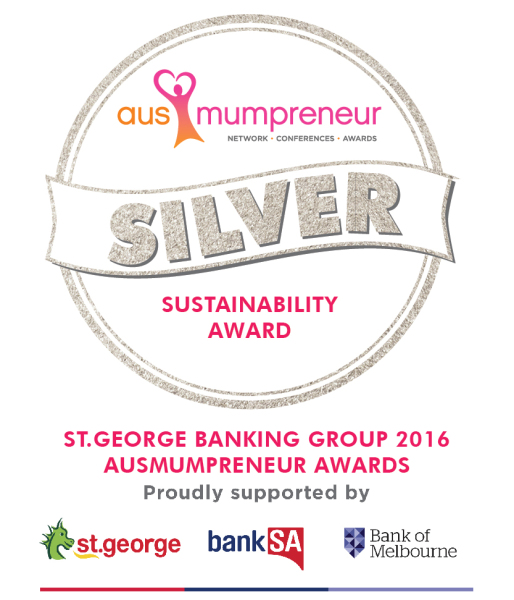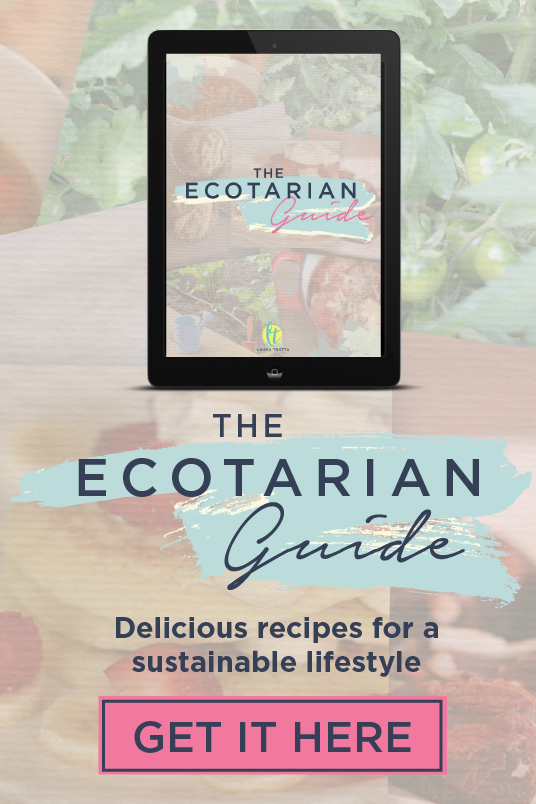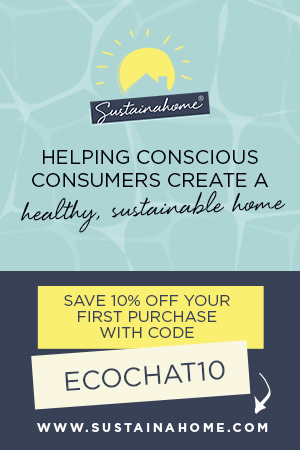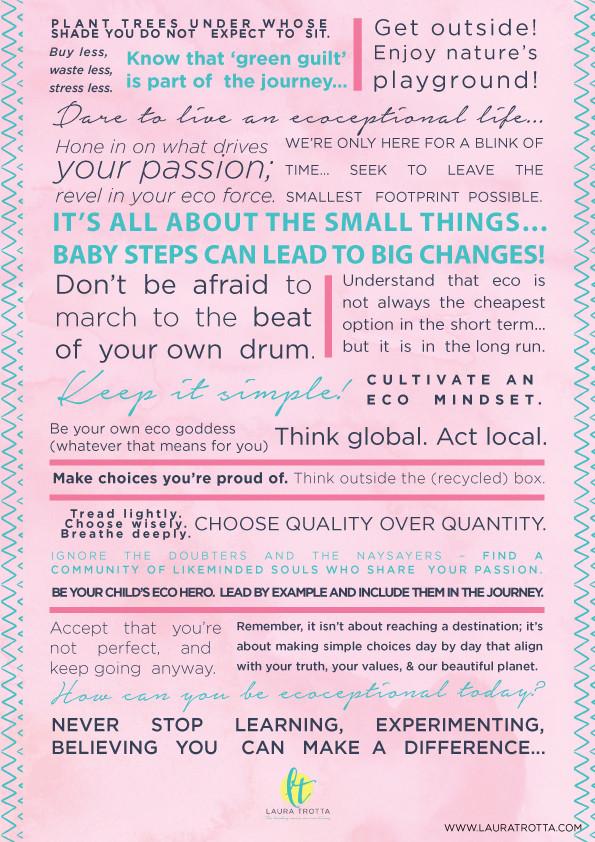Today you’re going to be inspired by Ronni Khan from OzHarvest.
OzHarvest is Australia’s leading food rescue organization. It collects quality excess food from commercial outlets and delivers it directly to more than 1,300 charities who support people who may not have regular meals every day. It was founded in 2014 by Ronni after she noticed the huge volume of good food going to waste from the hospitality and events industry, and she decided that there had to be a better way. Ronni started with one van in Sydney, and in her very first month, delivered 4,000 meals to vulnerable people.
OzHarvest has grown over the last 14 or so years, and has established a free supermarket in Sydney and regularly put on events bringing some of the country’s top chefs to cook delicious meals for vulnerable people using rescued food. They have trucks in all major cities around Australia rescuing food from institutions like airlines and restaurants and delivering it to needy people.
OzHarvest has also expanded internationally, but the very humbling story is that OzHarvest is tackling two really big issues in society and that is hunger / poverty and food waste.
There actually is enough food in the world to feed everyone, but the problem is that one third of food produced is lost or wasted. This is around 1.3 billion tonnes of food globally each year. Almost half of the fruit and vegetables grown globally are wasted.
The good news is that even if we save or rescue even a quarter of the food currently lost or wasted, it would be more than enough to feed over 870 million people. That’s more than the population in the world that currently don’t have enough food.
If you’ve read How To Reduce Food Waste in the Home and How To Reduce Food Waste from your Pantry, you would have learned that food waste is a substantial environmental issue.
Eight per cent of greenhouse gases heating our planet are actually caused by food waste, basically by rotting food in landfill releasing methane gas. If food waste was a country, it would be the third biggest emitter of greenhouse gases after U.S.A. and China. Eliminating global food waste would save 4.4 million tonnes of carbon dioxide release per year, which is equivalent to taking one in four cars off the road. If we can get on top of food waste in our homes, in our towns, in our cities, we can really have a massive impact on helping to reduce the impact of climate change.
I know that’s a lot to digest, and I really want to jump into this episode now with Ronni, so I’m not going to say too much more apart from just sit back, listen, just be inspired by what Ronni’s been able to achieve so far.
Click through to Ozharvest.org and support Ronni’s and OzHarvest’s initiatives further to really help to eliminate the issue of food waste in our society, but at the same time helping vulnerable people and ensure that no one in our society goes hungry.
Podcast: Play In New Window
Subscribe in iTunes (also on Spotify)
How big a problem are food waste and hunger in society today?
Ronni:
Well, it’s one of the biggest global challenges we have. A third of all food globally goes to waste. In Australia, that translates to $20 billion a year, while globally it’s in the trillions. It’s in every part of our food production, too. The process is incredibly broken, and it is a challenge but a solution that we can all deal with.
Wasting one third of the food we buy equates to around $3,300 per household per year that we are throwing away and not actually keeping in our own pockets. From that point of view, it’s crazy. I mean, apart from the fact of the benefit to the world, it’s a personal attack on our hip pockets. Of the $20 billion dollars, $10 billion of those dollars in Australia are caused by consumers. By us, real people.
How did OzHarvest come about? How did you transition from event caterer to Chief Food Fighter?
Ronni:
Well, within my business, I had an issue and a problem, and anyone who’s done catering or anyone who even holds a party or any kind of social event in their home or business, will be aware that we generally tend to over cater, and there’s so often food leftover. In my business, that was the case. I didn’t want anyone to leave hungry, and I always over catered, so I had an issue that I needed to solve and that was what to do with the surplus food.
Now for many years, I didn’t worry about that. For many years, I just did my business, until I reached a point that I wanted to know why I’ve been put on this earth, what my legacy could be, and then connected the fact that I saw food waste and knew there were hungry people. If I could connect those two, it could be a good thing. I guess 100 million meals later, we will be celebrating that number on hopefully on Christmas Day, good food that we will have saved rather than going to landfill.
Laura:
Wow, 100 million meals. That’s a massive achievement, congratulations, Ronni.
Ronni:
Thank you so much, always more to do.
Laura:
I know, I know, but it’s still important just to look back and see how far you’ve come and just take a quick breath and say, ‘Wow, we’ve done that. Now look to the future.’
How does this work in practice? How do you actually rescue food and redistribute it, because I imagine the process could be tough at times particularly where perishables or dairy or meat and things like that are concerned.
How does OzHarvest actually rescue food and redistribute it to vulnerable people?
Ronni:
So I actually run a transport and logistics company. We just do that for free, so we have a couple of ways that we make sure that we rescue surplus food and distribute it out to around 1,300 charitable organizations across Australia. So we have a fleet of vehicles. Those vehicles leave an office in every state across Australia. They leave empty and lift big amounts of produce. Maybe, for example, 5,000 pumpkins came into one of our offices, that would come to our warehouse or to our office, and that would be delegated out. A van leaves empty, goes and collects food from maybe eight or ten different suppliers and then delivers it to six or eight charitable organizations. It’s really all about the logistics and it’s all about a delivery service for free that we collect beautiful quality food and then deliver it.
We are also in the process of developing a digital platform, so we can connect good food where ever it is. Which means we can reach regional and rural Australia in a way that we could never reach with a physical vehicle. Connecting those food suppliers with local charities or local food means nobody needs to waste food and vulnerable people can get access to food that they otherwise couldn’t.
Laura:
Well that’s a brilliant idea. I know that last year, along the theme of providing food to vulnerable people, you launched the first ever rescued food supermarket in Australia which is stocked with produce that’s either been donated or which otherwise would go to waste but obviously it’s perfectly edible. Would you mind just explaining how that ‘take what you need, give if you can’ principle works in practice, and how well your supermarket’s been received by the Kensington community in Sydney?
How does the ‘take what you need, give if you can’ principle of OzHarvest’s free supermarket work in practice?
Ronni:
Well, first of all, thank you. The model has been extraordinarily received. There’s probably 50 countries around the world waiting for us to share our model with them.
The beautiful part is it doesn’t only serve the residents of Kensington. Kensington is the place that it’s physically located, but last week, I got a call from someone who said, ‘I just want to check if the supermarket’s open and I’m coming. It’s going to take me two trains and two buses to get there. I’m looking to get … you know, I’m looking for some produce.’
So, we service anyone and anywhere. We have about 30,000 people go through the store a year. It is a model where anyone can walk into the store, nobody’s asked any questions. It’s almost the personal shopping experience. It’s run by volunteers, we have eight to ten volunteers a day who are there to help. We have seconded a wonderful supermarket manager from one of our partners Woolworth’s, and that is brilliant because she has brought efficiency and clarity around how supermarkets should work because we didn’t know anything about the supermarket. What we knew was, we wanted to give people food and make sure there was dignity and respect, and that nobody had to explain why they needed food. So that is the ‘take what you need’ model, and the ‘give if you can’ is at the end of your shop, there isn’t a scale, there isn’t a register, there is a box that says, ‘Every dollar that makes it to OzHarvest allows OzHarvest to deliver two meals to someone in need.’
So people can donate, and they donate from $2 to hundreds of dollars, and it just depends who’s coming through the store. It is a pretty beautiful model.
Laura:
That’s an amazing model, and I just love the fact throughout all your work (and I’ve watched your documentary film, The Food Fighter where this is particularly evident) you maintain dignity and respect throughout. Whether you’re catering for a group of vulnerable people for an occasion like a Christmas Day or serving them in your free supermarket, you do it all while maintaining people’s dignity.
Ronni:
Well that is the most important element. We’re all the same, some people have fallen through the cracks at no fault of their own or for a number of reasons. Who am I to judge? We are here to serve, and that is what Ozharvest is all about.
Laura:
Yeah, I really, really love it. You had some incredible high points, and no doubt some tough low points and challenges on your journey so far creating, and building, and growing, and scaling Ozharvest. Would you mind just sharing one of your high points, and one of your really tough low points that particularly stand out in your mind?
You’ve had some incredible high points and no doubt some tough low points on your journey so far. Would you mind sharing one of each that particularly stand out in your mind?
Ronni:
Yes, so I don’t specialize in low points-
Laura:
Or learnings, rather.
Ronni:
I tend to view them as challenges, not obstacles. But I guess one of the biggest was when fairly soon after I started, some of our food donors or caterers or new food donors said, ‘No, well we could never give you food because of the liability.’ So I guess working to change that and have the laws changed in four states was a challenge which we overcame.
Low points personally, I lost my daughter-in-law which was very, very tragic but filled with gratitude for the life that she gave us and that we had with, and allowed me to remember that all we have is now, and all we can ever do is be the best we can be each and every day.
I guess high points are opening a free supermarket, seeing the faces of people when they walk through our major annual event the ‘CEO Cook Off’ which is really a gala dinner for our clients, 1,500 people I invited. It’s just the biggest, most beautiful dinner where 50 chefs and hundreds of business leaders come together, cook, and serve dinner to our guests. That’s a very beautiful, beautiful night for us. It’s all for our flagship fundraiser, so that brings me lots of joy.
The dinner is for vulnerable people. It isn’t for … The CEOs and the business leaders … they work at the event. They serve the dinner. The guests, the VIPs are the people we deliver food, too. Yeah, that’s what the dinner’s for.
Laura:
I can imagine it would be such an amazing event, especially for your guests to have that experience.
Ronni:
Yeah, beautiful atmosphere. It’s actually as beautiful for the people who are serving because it’s the most humbling experience to be in a position to give something graciously that is also, again, around dignity and respect. It’s a beautiful night, and if they are any business leaders out there who’d like to get engaged, this is the time. It takes place in March 2019, and you can just go onto the CEOcookoff.com.au website to find out more.
The CEO Cook Off event is held in Sydney, but we have leaders who fly in from around the country from every state. We have 50 of Australia’s top chefs coming from all over to participate.
Laura:
Wow. I’m almost speechless just listening to some of the events and some of the initiatives that you’re able to get off the ground. They’re huge, huge initiatives. That’s real credit to yourself and your vision and the team that you’ve managed to pull around you.
What drives you, Ronni, to just keep going and championing this food waste cause and supporting vulnerable people? People that so many people turn a blind eye to and kind of almost wish weren’t there sometimes. What keeps you to keep going and serving?
What drives you to keep going and championing the food waste cause?
Ronni:
Well, giving is the most enriching thing I’ve ever done. We all think getting is good, but giving is way better. Just knowing that I can make a difference, you know, and that guy called and said, ‘When will the market be open because I’ve got PTSD and I’m going to be making a big effort, two trains and two buses to come and get some beautiful food.’
That’s extraordinary, and that drives me to want to be better, to make more initiatives that will support people and fundamentally put ourselves out of business. I want OzHarvest to fix a problem not perpetuate it, so that’s what drives me. All of the time there’s still a challenge. I have a lot of work still to do and I’m excited by it.
Where to next for Ozharvest and Ronni Kahn?
Ronni:
Well we just launched an education program that’s going into schools. It’s curriculum ready for years 5 and 6. We’ve been having wonderful traction with that. We piloted it in four primary schools, and it gives teachers the skills to teach sustainability, nutrition, healthy eating in a very practical way, and provides the full tool kit so that we can start educating you.
The exciting thing, literally hot off the press, we just printed a limited edition of a kid’s book that I commissioned that is the story of waste but through the eyes of Lenny the Kangaroo and the Harvester Ants. It’s whimsical and beautiful, and it’s for all the ages, but starts from three and up. We printed it in Australia, so we’re very proud of that, and we have bundles that we are trying to push through corporate, our corporate channels. Next year, that book will be available in stores. It’s called ‘Lenny and the Ants’. There are a few single editions available on the website, but for me it’s about education, it’s about shifting and changing behaviour. If you can do it in the most subconscious, subliminal way, then we have even greater benefit.
Click HERE to purchase Lenny and the Ants.
Laura:
For those who might be sitting in their homes or in their businesses thinking, ‘Gee, what can I actually do to help get on top of food waste in my area of influence.’ What are some of your best tips for them?
What are your best tips to reduce food waste in the home?
Ronni:
Well there’s our beautiful, new mantra.
We launched another campaign that is for the citizens of our country and for all of us. For the people.
So that we’re looking for food fighters who want to help us train and escalate the learning around how to minimize food waste and save money. But one of our best new mantras is, ‘Look, Buy, Store, Cook’.
Look what you have in your fridge before you go shopping. Look in your pantry before you go shopping. Buy what you need only. Store it, and store it properly. Sometimes the freezer’s a pause button if you’re not going to use something. Then, cook it and eat it and use your leftovers. So look, buy, store, cook is the mantra we can all adopt in our homes. It’ll save us money, it’ll help our planet as well because we won’t waste food.
Laura: That’s so simple – I love it!

How can we best support OzHarvest and its mission to nourish our country?
Ronni:
Thank you so much for asking. So you know there’s three things that we call out for people to do. Number 1 is time. Volunteer if you’re anywhere near an OzHarvest site, and you have a little bit of time, then volunteer your time.
Secondly, if you know people who are in the food industry, share with them because there’s so many businesses that don’t know that they can donate their food without any fear of liability.
The third of course, is by donating money or buying our book, “Lenny and the Ants”, or supporting us in any way. Every dollar allows us to deliver two meals to someone in need. This Christmas, if you shop at Woolworth’s, you can add 50 cents to allow a meal to be delivered to OzHarvest. You can go online and donate to us. Every dollar means we can deliver two more meals to someone in need, and that dollar comes directly to OzHarvest and directly allows us to deliver beautiful, nourishing food to vulnerable Australians.
We’d love to hit delivering our one hundred millionth meal on Christmas Day. So we have the Hundred Millionth meal campaign on our website all over, so we would love for your listeners to support that. Thank you so much for this opportunity.
Laura:
No worries, I’m sure they will help support you as I will too. Lastly, just thanks so much, Ronni, for coming on Eco Chat. I know you’re such a busy, busy woman with a massive vision, and you’re hard to pin down. I really appreciate you coming on and sharing a little bit about your story, and your vision today to basically get on top of food waste in our country and globally, too. I know that we haven’t specifically talked about it today, but OzHarvest is spreading to many other countries around our globe as well.
Ronni:
Yeah, well thank you very much. It’s an important subject, an important issue, and the more we can spread what it is we do and how each and every one of us as citizens of this exquisite, beautiful country can be part of making that difference. It’s very precious, so thank you.
Over to You!
How do you fight food waste in your home or local community? Share below!
Like this post? You may also like:
How to Host a Zero Waste Party
How to Reduce Food Waste in Your Home
What to do with Christmas Leftovers
How to Reduce Food Waste from your Pantry
How to Create a Weekly Meal Plan
- Sustainable Home Design- factors to consider to maximise sustainability - July 28, 2022
- Advantage and Disadvantages of Tiny Houses - May 31, 2022
- How School Strike 4 Climate is Empowering Youth to Fight for Their Future - May 1, 2022

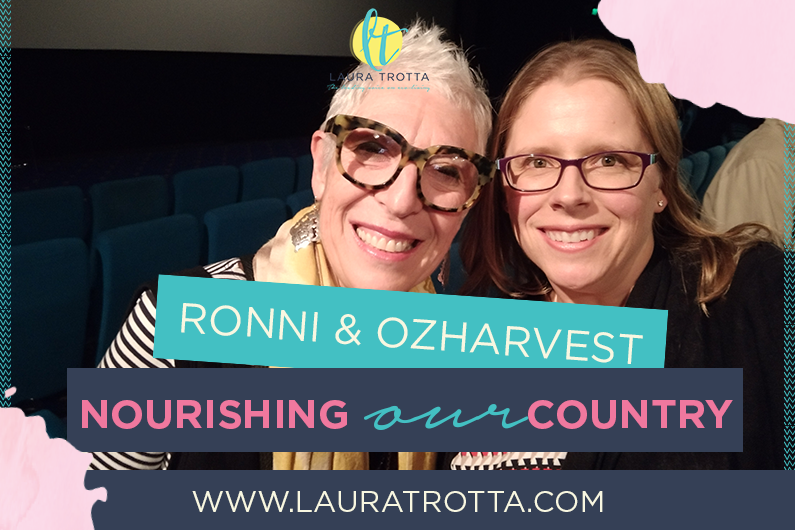
 Laura Trotta is one of Australia’s leading home sustainability experts. She has a Bachelor of Environmental Engineering, a Masters of Science (in Environmental Chemistry) and spent 11 years working as an environmental professional before creating her first online eco business, Sustainababy, in 2009. She has won numerous regional and national awards for her fresh and inspiring take on living an ‘ecoceptional’ life (including most recently winning the Brand South Australia Flinders University Education Award (2015) for the north-west region in SA and silver in the Eco-friendly category of the 2015 Ausmumpreneur Awards). With a regular segment on ABC Radio and with her work featured in publications like Nurture Parenting and My Child Magazine, Laura is an eco thought leader who’s not afraid to challenge the status quo. A passionate believer in addressing the small things to achieve big change, and protecting the planet in practical ways, Laura lives with her husband and two sons in outback South Australia.
Laura Trotta is one of Australia’s leading home sustainability experts. She has a Bachelor of Environmental Engineering, a Masters of Science (in Environmental Chemistry) and spent 11 years working as an environmental professional before creating her first online eco business, Sustainababy, in 2009. She has won numerous regional and national awards for her fresh and inspiring take on living an ‘ecoceptional’ life (including most recently winning the Brand South Australia Flinders University Education Award (2015) for the north-west region in SA and silver in the Eco-friendly category of the 2015 Ausmumpreneur Awards). With a regular segment on ABC Radio and with her work featured in publications like Nurture Parenting and My Child Magazine, Laura is an eco thought leader who’s not afraid to challenge the status quo. A passionate believer in addressing the small things to achieve big change, and protecting the planet in practical ways, Laura lives with her husband and two sons in outback South Australia. 